Post-communist Czechoslovakia was a country reborn of the fire of rock and roll!
Today is the 26th anniversary of the start of the Velvet Revolution, a peaceful student-led anti-government protest movement that led to the fall of communism in Czechoslovakia in December 1989. The name of the revolution stemmed directly from Lou Reed’s Velvet Underground, the house band of Andy Warhol’s Silver Factory art gallery/performance space in the 1960s. The Velvets’ stripped-down, subterranean sound and nihilistic attitude made them a favorite among avant-garde Czechs seeking mind-expanding alternatives to bland Soviet-spun art, literature, and music.
Within six weeks of the first demonstration on November 17, a playwright-poet-philosopher who had been imprisoned as a leading dissident became the country’s first democratically elected president in 41 years. His name was Vaclav Havel. He loved rock and roll, and was undoubtedly the first head of state to invite rockers to share their ideas. The photo above shows him with Lou Reed, Frank Zappa, and the Rolling Stones: all the president’s men.
During a trip to the U.S. in either 1967 or 1968, Havel bought a copy of a Velvet Underground album; no one is really sure if it was the band’s debut disc or “White Light/White Heat.” Said music writer Rob Jovanovic, “Havel took it home, along with Frank Zappa’s debut, and managed to smuggle it through Customs. Soon it was being copied and passed around the Prague underground, influencing the avant-garde set to play secretive gigs around the capital…” When Havel met Reed for the first time, early in his presidency, he was rumored to have said, “Did you know I am president because of you?” Following their first encounter, the hard-to-impress Lou Reed described Mr. Havel as a “heroic, intellectual, music-loving amazing person.”
The very serious Frank Zappa, whom Havel appointed a special “cultural ambassador,” was overcome with emotion when the president told him that Czechs used to be beaten by the Secret Police for listening to his music. In fact, Zappa’s song “Plastic People” inspired the name of a popular dissident Czech band, The Plastic People of the Universe, formed in 1968 following the Soviet clampdown that ended Czechoslovakia’s short-lived Prague Spring. Following the arrest and imprisonment of the group’s members in 1976, Havel declared that the Plastics were defending “life’s intrinsic desire to express itself freely, in its own authentic and sovereign way.” This led to the creation of a human rights organization known as Charter 77, a group of 242 petition signers who called for the human rights guaranteed under the 1975 Helsinki accords. Havel’s role in this movement, and his subsequent creation of the Committee for the Defense of the Unjustly Prosecuted in 1979, led to multiple imprisonments.
The Rolling Stones, bad-boys of the British rock scene, appealed to Havel’s rebellious nature. “For me, the Rolling Stones have always been a sort of counterweight to the more amiable, more lyrical and often more easygoing Beatles,” the president told Rolling Stone writer Roman Lipcik in the magazine’s October 4, 1990, issue. “I used to listen to their music often. Songs like ‘Satisfaction’ can hardly be forgotten.”
The Stones invaded Prague on August 18, 1990, three days before the twenty-second anniversary of the Soviet-led invasion of Czechoslovakia. Mick Jagger appeared on Czech state TV with a rallying cry: the Stones are rolling into town! Posters covered the city, announcing the tanks are rolling out! Keith Richards noted the president’s playful side: “We gave Vaclav this little white remote control with a tongue on it. He walked around lighting up the palace, and suddenly statues came alive. He was like a kid, pushing buttons and going, whoa!”
Czechoslovakia split into two separate entities in early 1993: the Czech Republic and Slovakia. I made 10 business trips to the CR in the early ’90s, during the height of Prague Spring Redux. I never had a chance to encounter any of my rock idols while there, but I could feel the spirit of rock and roll in my soul as I walked the cobblestone streets of marvelous, mysterious Prague, knowing that music truly did bring power to the people.
RIP, President Havel: October 5, 1936 – December 18, 2011.
RIP, Frank Zappa: December 21, 1940 – December 4, 1993.
RIP, Lou Reed: March 2, 1942 – October 27, 2013.
Here are the Plastic People of the Universe, with their rendition of the Velvet Underground’s “Run Run Run.”
© Dana Spiardi, Nov 17, 2015

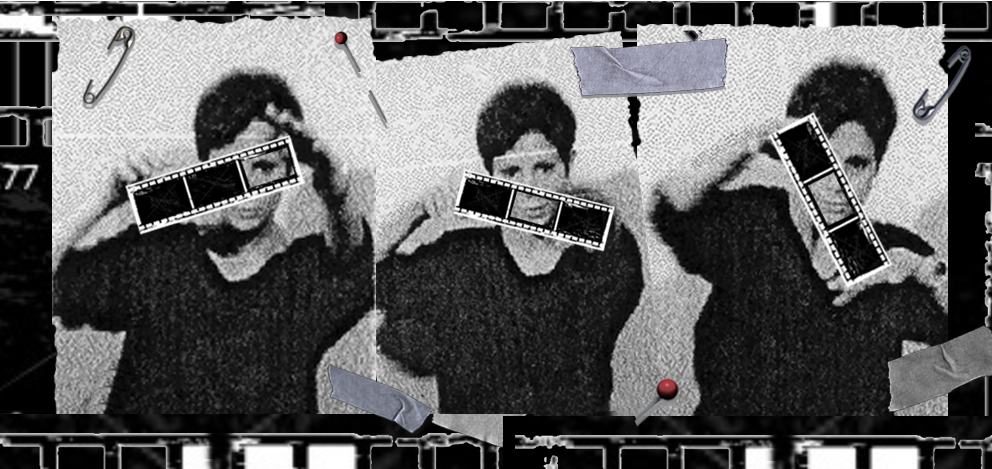
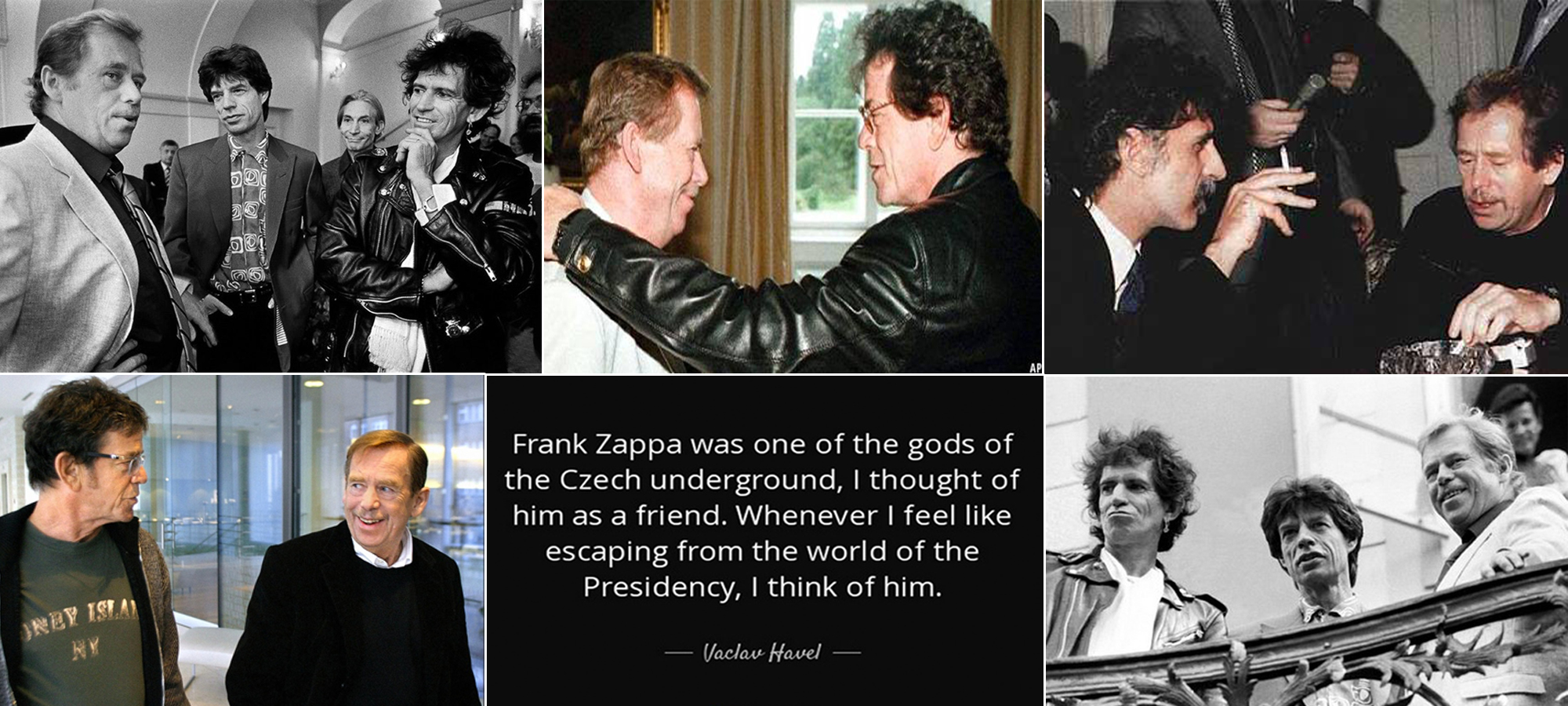
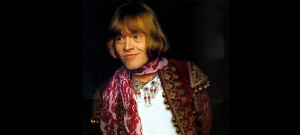
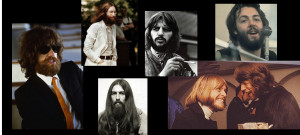
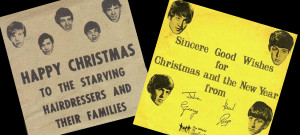
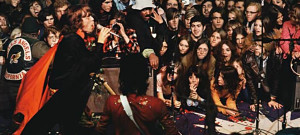
Great story. Power to the People right on. RIP Lou and Frank.
Was the photo of the Plastic People actually a shot of Jim Jarmusch’s Thanksgiving celebration?
Notice they’re eating goulash or soup from a big pot placed in the middle of the table. That is, in my Czech experience, a very Central European way of feeding a bigger group of people. 🙂
BTW, it’s popular to say the Velvet Revolution was named after Velvet Underground, but as far as I know, that was a little joke that took off in Western media, because it’s catchy and ties the events to something on their side of the former Iron Curtain. I’m sure Havel appreciated the (existing) connection and that’s why he made the joke (and maybe it’s why the word “velvet” came more easily to mind), but the actual immediate reason for that name was because the revolution was very peaceful (soft, gentle, like velvet) as revolutions go. Leaving that out of the story reduces the story: it could not have taken that name had it gone down differently.